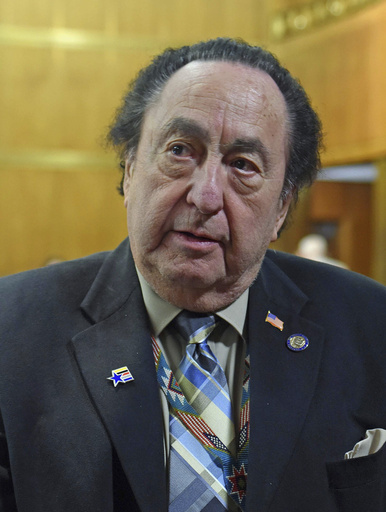Leonard Peltier, an Indigenous activist, is set to return home after spending nearly 50 years in prison for the killings of two FBI agents back in 1975. President Joe Biden announced on Monday that he would commute Peltier’s sentence, a decision that comes after decades of advocacy from the community highlighting the injustices faced by Native Americans at the hands of the U.S. government.
At 80 years old and in declining health, Peltier will move to home confinement as part of the commutation. It is essential to note that this commutation does not act as a pardon for the crimes he was convicted of, a point that some of his supporters appreciated since Peltier has long maintained his innocence. Nevertheless, the decision taken by Biden before leaving office has sparked anger among law enforcement authorities who believe Peltier is guilty.
The National Congress of American Indians hailed the commutation as a “historic” decision, emphasizing that the case has come to represent the systemic injustices experienced by Indigenous Peoples over the years. Biden’s action occurred despite opposition from former FBI Director Christopher Wray, who previously communicated his thoughts in a private letter to the president, asserting that Peltier is a “remorseless killer” and cautioning against any leniency.
Peltier’s activism within the American Indian Movement, which has fought against police brutality and discrimination since the 1960s, is notable. The movement gained significant attention in 1973 during a standoff in Wounded Knee, South Dakota. During a confrontation with FBI agents on June 26, 1975, Peltier acknowledged that he was present and firing when agents Jack Coler and Ronald Williams were fatally shot at close range following a shootout. A fellow AIM member, Joseph Stuntz, also lost his life during the exchange. After fleeing to Canada, Peltier was extradited to the U.S. and convicted of first-degree murder, amid claims that evidence against him was fabricated. Two other co-defendants in the case were acquitted.
Although Peltier had been denied parole as recently as July, he was not eligible for another opportunity until 2026. On the news of the commutation, Chauncey Peltier, his son, expressed his surprise and happiness, stating, “It means my dad finally gets to go home.” He referred to the case as one of the biggest violations of rights in history and stressed his excitement about his father’s eventual return.
His tribe, the Turtle Mountain Band of Chippewa, has made preparations for his return to the Turtle Mountain Indian Reservation in North Dakota. Meanwhile, Peltier remains incarcerated at a high-security facility in Florida, with his potential release date tentatively set for February 18. The commutation is a result of prolonged advocacy from Native American communities and allies, with organizations like Amnesty International considering him a political prisoner for many years. Notable figures such as Archbishop Desmond Tutu and civil rights leader Coretta Scott King have been among those supporting his release.
However, law enforcement officers, former FBI agents, and prosecutors have strongly opposed any clemency for Peltier, citing the horror of the events that took place. Previous presidents, including Bill Clinton and Barack Obama, had also denied his requests for clemency. Mike Clark from the Society of Former Agents of the FBI criticized the commutation, describing it as a “cowardly act,” highlighting the devastating impact on the families of the slain agents.
In a broader context, President Biden has been active in issuing a significant number of pardons and commutations. He previously announced that he was commuting sentences for nearly 2,500 individuals convicted of nonviolent drug offenses and issued a pardon for his son, Hunter, who faced charges related to gun and tax issues. Outgoing Interior Secretary Deb Haaland, the first Native American to hold a Cabinet position, remarked that this commutation signifies a form of justice that has been elusive for many Native Americans for decades. She expressed gratitude for Peltier’s return and commended the president for his understanding of the impact this decision has for Indian Country.




